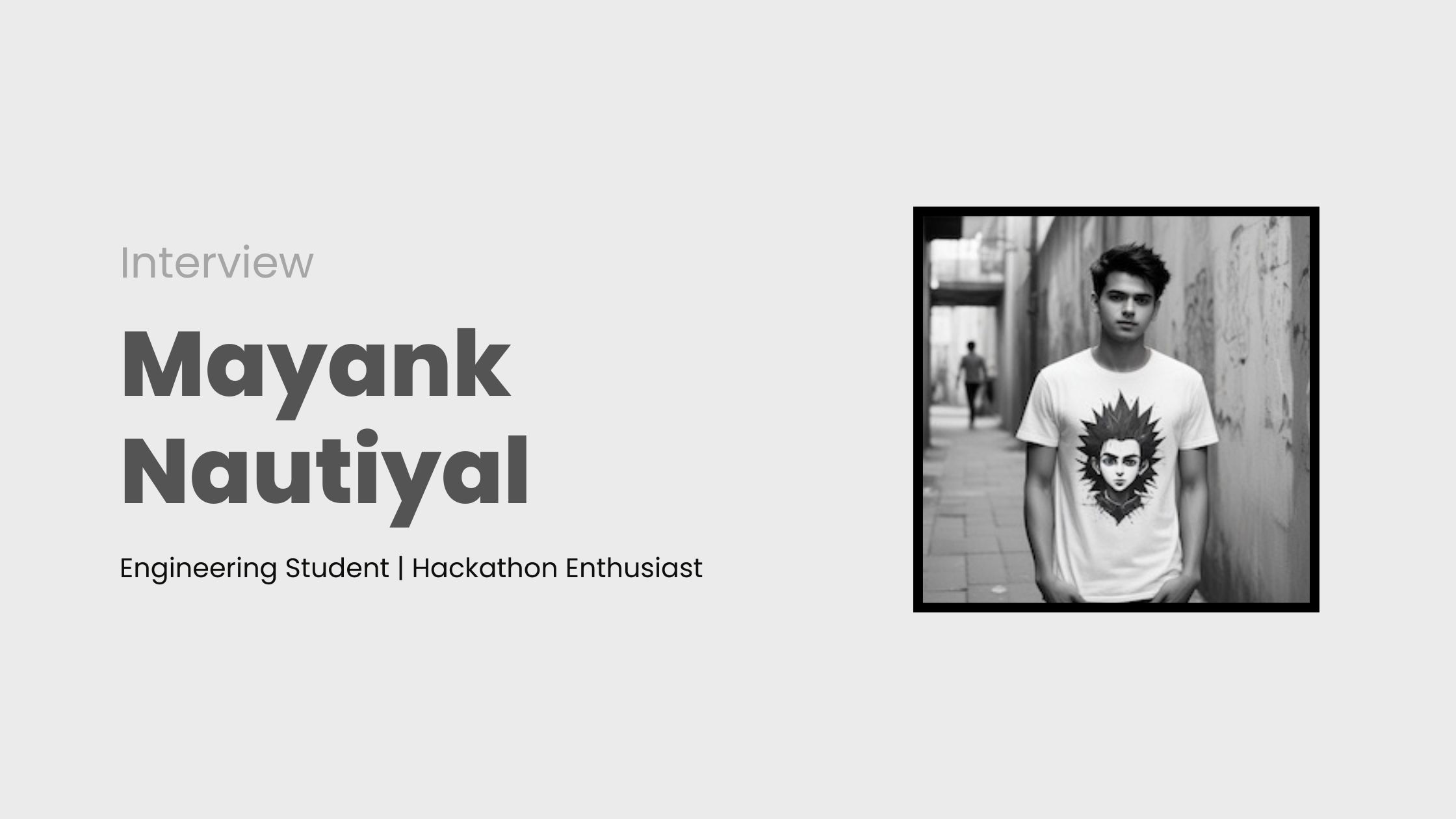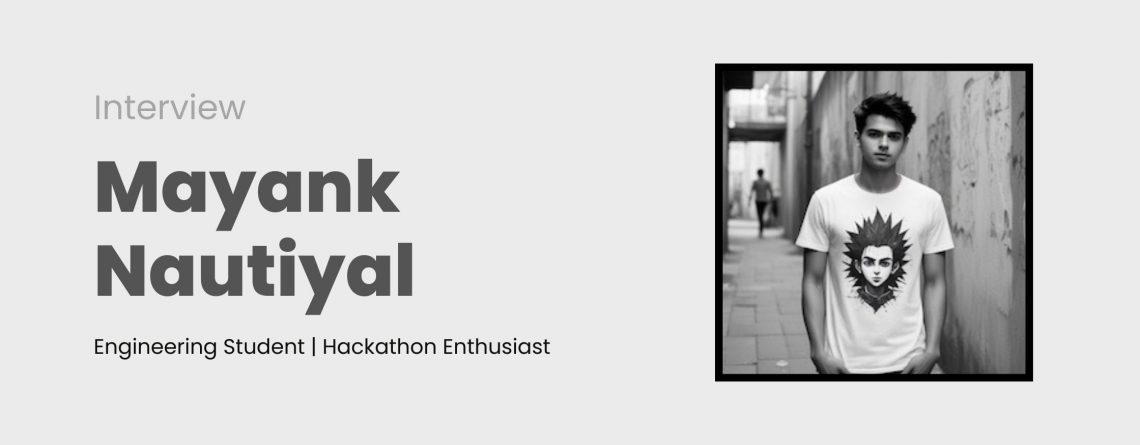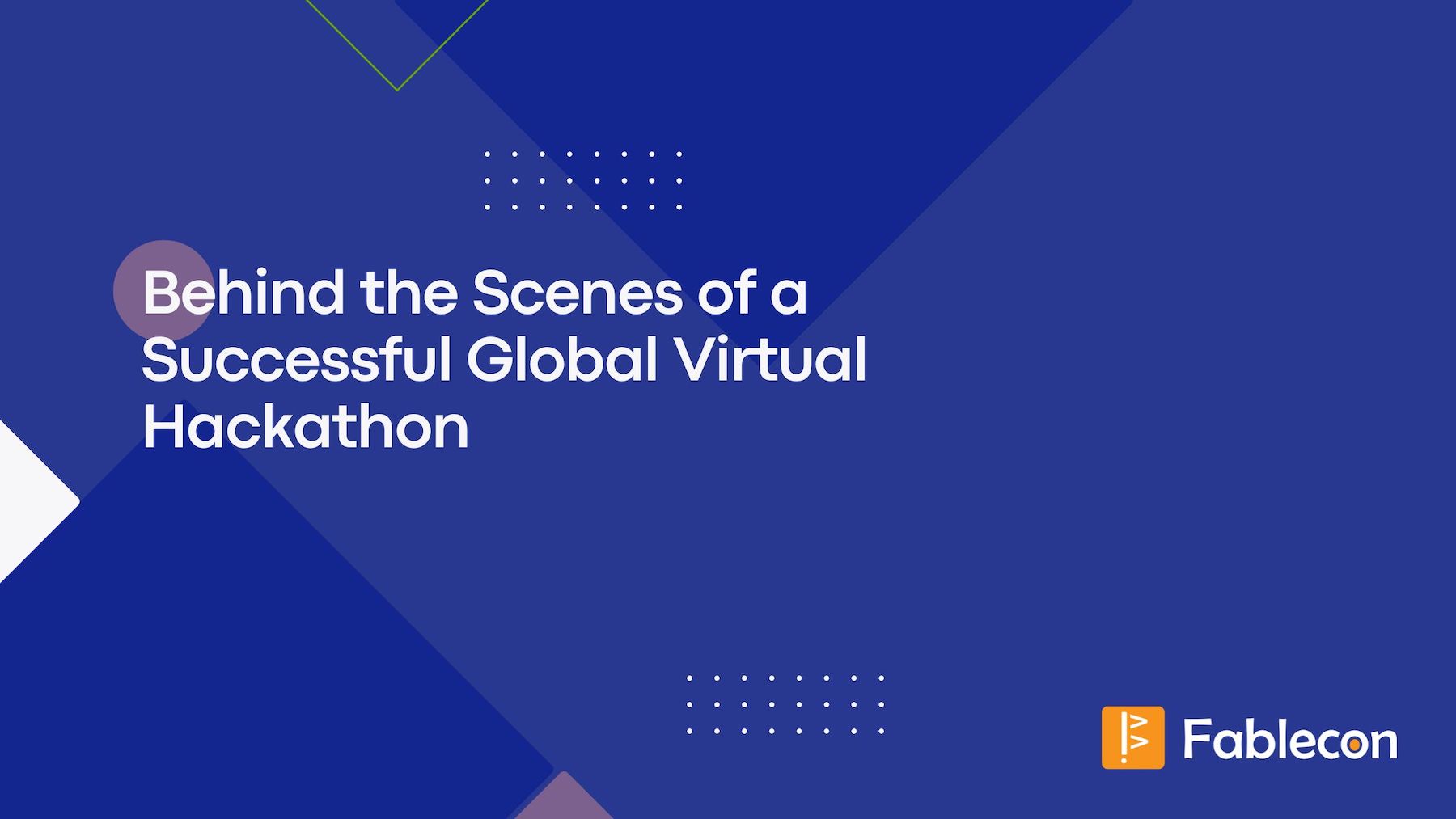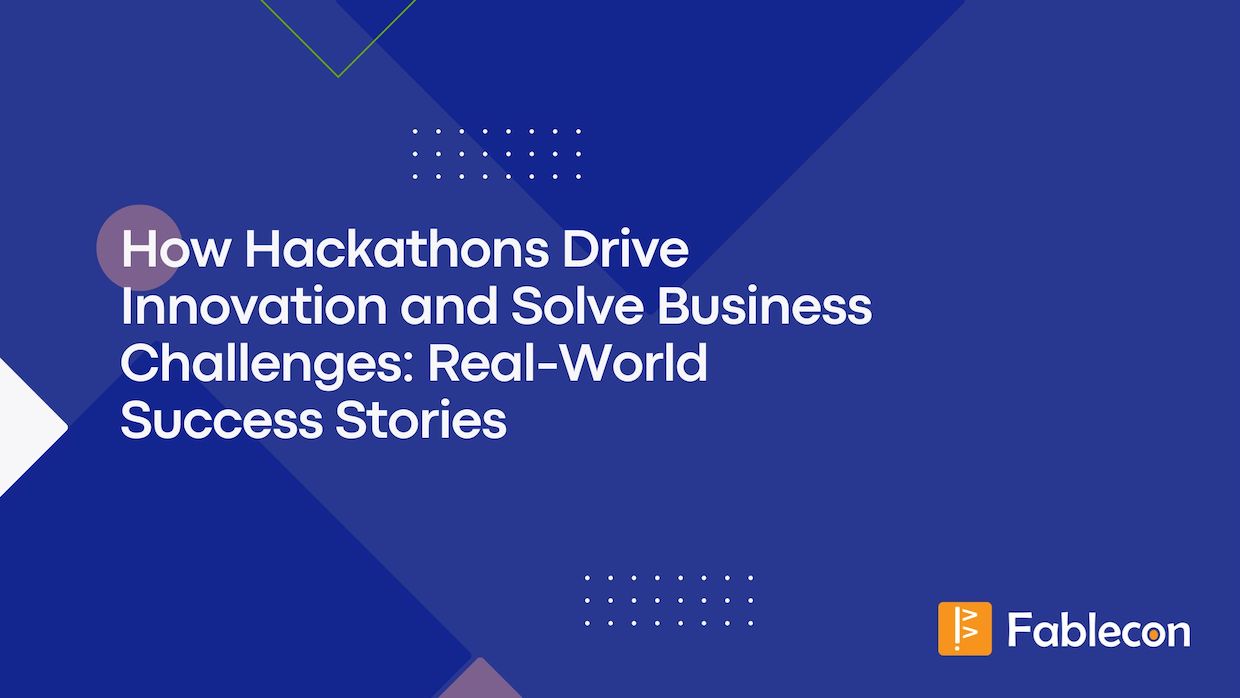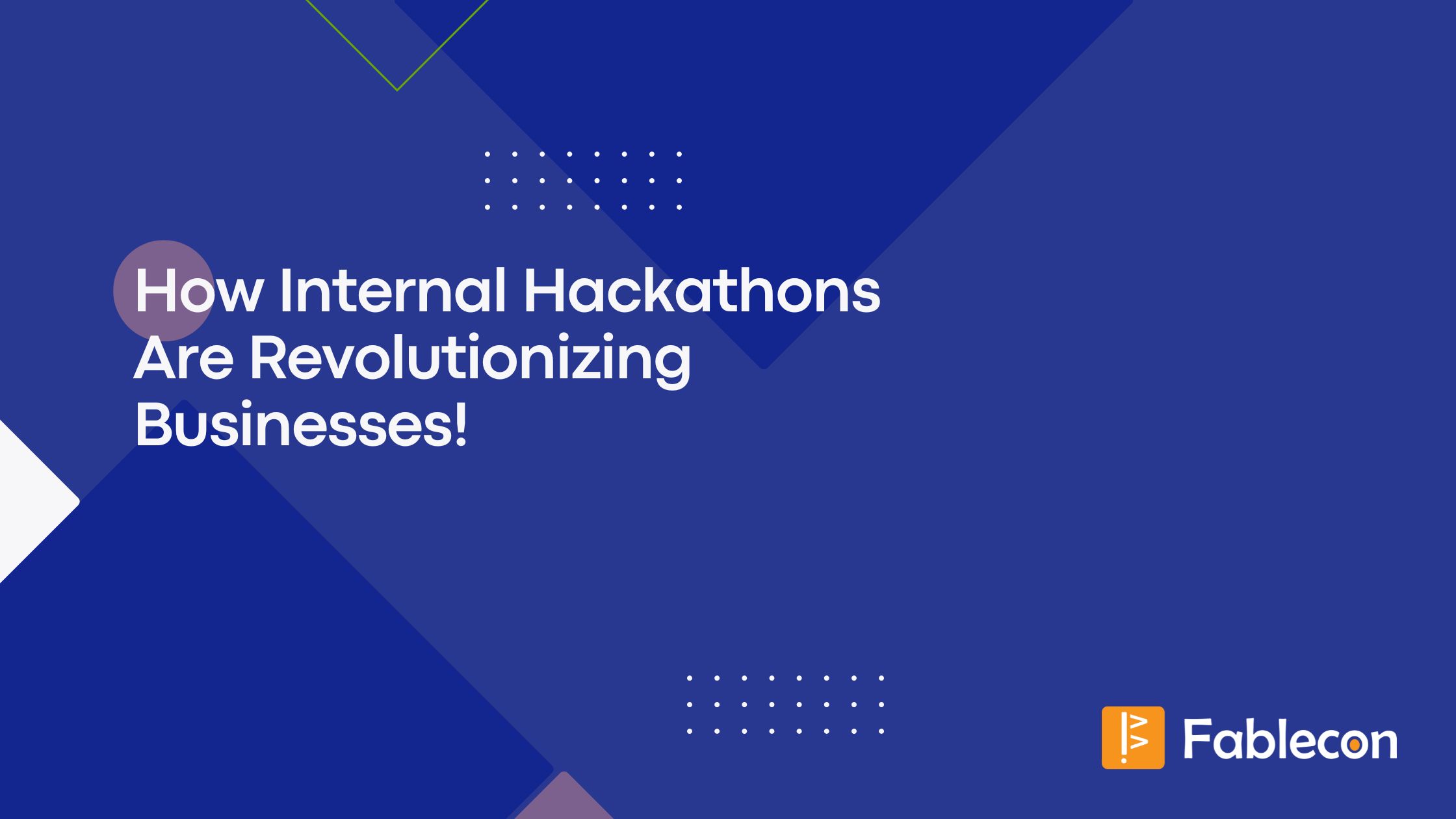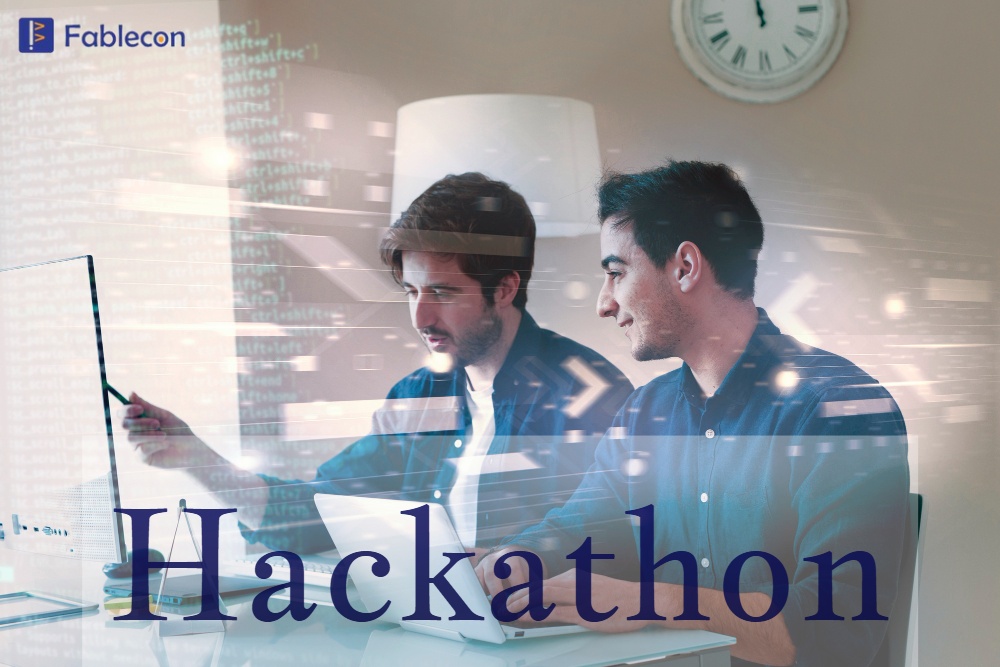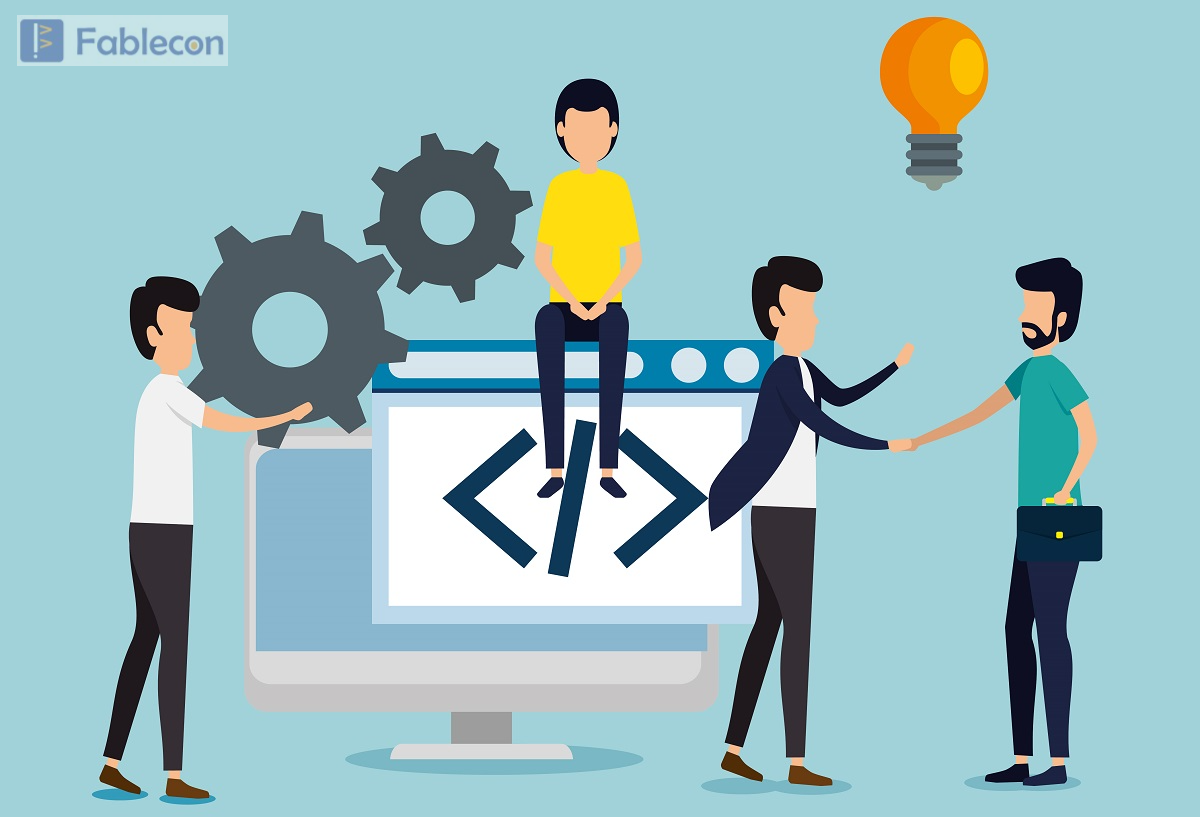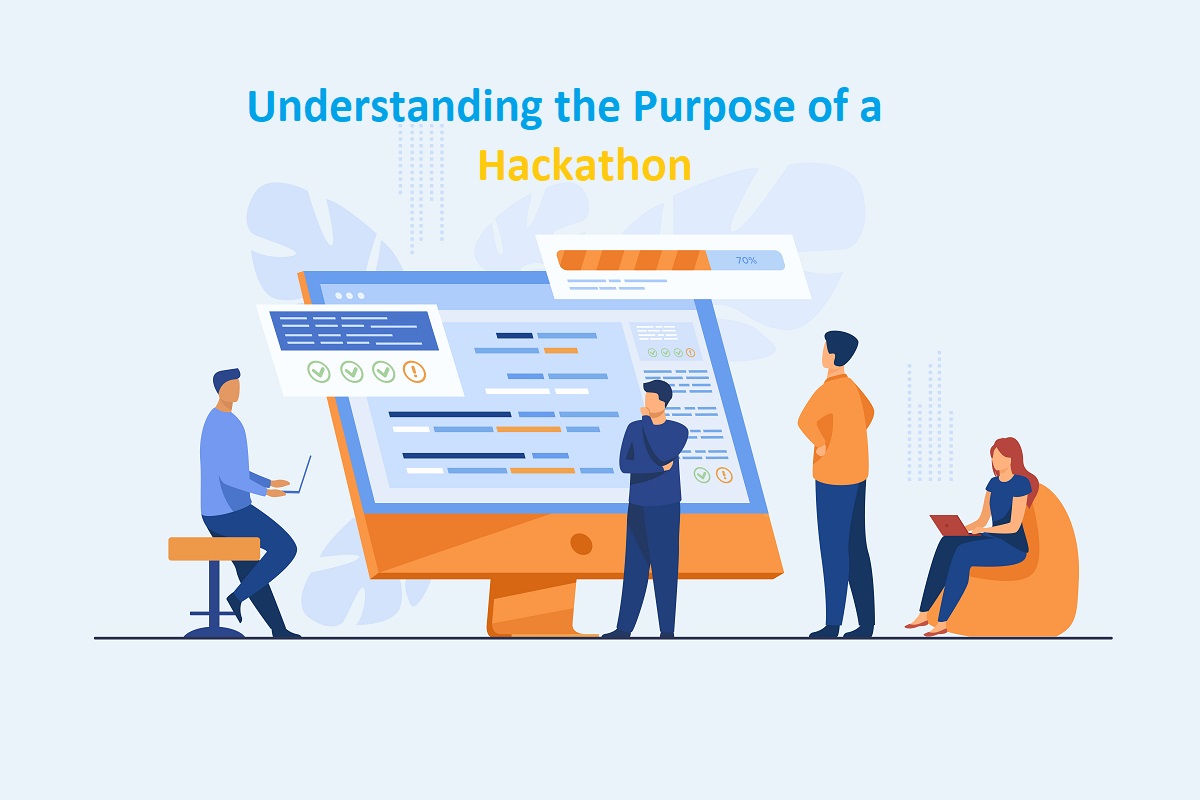Interviewer: Welcome to today’s interview, Mayank!Thank you for being here! Could you start by telling us a little bit about your journey into hackathon?
Mayank: Thank you for having me. I first started participating in hackathon during college. I was always curious about coding but never really saw myself as a competitive programmer. Hackathon seemed like a perfect way to combine coding with real-world problem solving.
My first hackathon was a bit overwhelming, but since then, I’ve participated in many online hackathon including one on Fablecon.
Interviewer: That’s great! What do you think appeals people to online hackathon, and how have they evolved over time?
Mayank: I think the biggest draw is the challenge and the sense of community. You’re in a space where everyone’s trying to solve problems, and there’s this rush of adrenaline when you’re racing against the clock to build something innovative. It’s a great place to network and collaborate with like-minded people.
Over time, hackathons have become more of a learning experience for me. Early on, it was all about competing, but now I see them as opportunities to learn new skills, try out emerging technologies, and collaborate on ideas that can really make an impact.
Interviewer: As someone who’s been in the hackathon circuit for a while, what would you say are some key skills or strategies that can help participants stand out?
Mayank: One of the key things is to focus on the problem you’re trying to solve, not just the tech. It’s easy to get caught up in flashy tools, but at the end of the day, judges are looking for real solutions. Collaboration is also crucial. A strong, diverse team with clear communication will always perform better than a solo genius.
Time management is another big one—understanding what you can realistically build in the timeframe and prioritizing features is important. And, of course, being adaptable. Things never go according to plan, so you need to be ready to pivot when necessary.
Interviewer: That’s a great advice! Speaking of adaptability, what’s the biggest challenge you’ve faced during a hackathon, and how did you overcome it?
Mayank: Oh, there have been quite a few challenges! I think the toughest one was during an online hackathon when we had technical issues with our cloud server in the final hours. We had everything ready but couldn’t deploy it. It was frustrating, but as a team, we decided to focus on documenting everything we’d done and presenting the solution as if the deployment had worked. It wasn’t ideal, but we showed resilience and how close we were to a full solution, which the judges appreciated. We ended up in the top three despite the hiccup.
Interviewer: That’s impressive, considering how stressful those final moments can be! What advice do you have for beginners, especially those who might feel intimidated entering their first hackathon?
Mayank: I completely get the intimidation factor—hackathons can seem intense. My advice to beginners is to not worry about winning. Focus on learning and building something, even if it’s simple. Everyone starts somewhere, and you’ll improve with each hackathon you participate in. Don’t be afraid to ask for help. Most hackathons have mentors or experienced participants who are happy to guide you. Also, choose a project idea that interests you; passion will keep you going when things get tough. And finally, enjoy the process—hackathons are a lot of fun if you let them be!
Interviewer: Speaking of mentors, how important do you think mentorship is in a hackathon setting? Have you had any mentors that helped you along the way?
Mayank: Mentorship is super important. In many cases, mentors can help you see a different perspective or point out things you might have missed. They can also provide guidance on tools, approaches, or technologies you may not be familiar with. In one of my earlier hackathons, a mentor suggested we pivot our idea slightly, which made it much more feasible within the time limit, and we actually won that hackathon! Having someone experienced can really make a difference, especially for beginners.
Interviewer: Great point! What do you think makes a strong hackathon team? How do you choose your teammates?
Mayank: A strong hackathon team is all about complementary skills and good communication. You want a mix of developers, designers, and someone who can think strategically or handle the business aspect of the project. Having a diverse skill set allows you to cover all the bases, from coding to user experience to pitching your solution. As for choosing teammates, I usually look for people who are motivated and bring something unique to the table. You want people who are open to collaboration and can handle the fast-paced environment. Plus, having teammates you get along with makes the whole experience more fun!
Interviewer: That’s so true! Hackathons are often intense and short, so working with a good team must make a big difference. What’s your favorite hackathon project you’ve worked on, and why?
Mayank: That’s a tough one because there have been a few! But I think my favorite would be an app we built that helped with disaster management. It used real-time data to predict natural disasters and alert nearby emergency services. It was challenging because we had to integrate a lot of different APIs and make sure the data was accurate, but it felt really rewarding to work on something that could potentially save lives. We didn’t win that hackathon, but the experience was unforgettable because of the impact it could have had.
Interviewer: Wow, that sounds like an incredible project! Do you think hackathon experiences help participants in their professional careers, and if so, how?
Mayank: Absolutely. Hackathons simulate a lot of the challenges you face in real-world projects, like working under pressure, collaborating with a team, and managing limited resources. Plus, hackathons are a great way to build your portfolio. Many employers love to see hackathon projects on resumes because it shows that you’re proactive, can work on tight deadlines, and are able to solve problems creatively. For me, hackathons have opened doors to job opportunities and even freelance work. The networking alone is a huge benefit.
Interviewer: That’s a fantastic perspective. Before we wrap up, do you have any final tips or words of encouragement for those about to enter their first hackathon?
Mayank: My biggest piece of advice is to just dive in! Don’t be afraid of making mistakes—that’s how you learn. Hackathons are meant to be intense but also fun, so enjoy the experience. Even if you don’t come out with a win, you’ll walk away with new skills, new connections, and maybe even new ideas to pursue further. Every hackathon is a chance to improve, so keep participating, and before you know it, you’ll be the seasoned participant giving advice to others!
Interviewer: Thank you so much for your time and insights! I’m sure our readers will find your advice incredibly helpful, especially those just starting out in hackathons.
Mayank: Thank you! It was great to chat. I hope to see more beginners jumping in and experiencing the thrill of hackathons!




